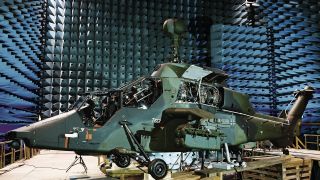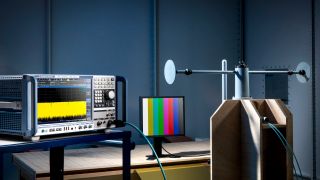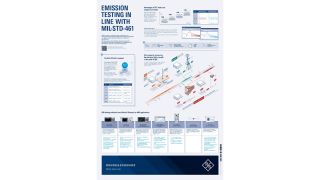EMC test requirements for components and sub-systems according to MIL-STD-461/464, RTCA DO-160
Avoiding and overcoming EMC risks to platforms, whether airborne, shipborne or on land, which can jeopardize the security and operational capabilities of electronic systems, is a difficult task. New challenges arise from the increasing number of on-board transmitters for satellite and ground communication, self-defense, and monitoring and surveillance. In addition, there are new technologies, larger bandwidths, higher speeds and also the use of new materials, such as carbon fiber, that have an impact on the complex electromagnetic compatibility. Aerospace and military EMC testing standards are designed to minimize the risk of malfunction or worse, due to interference either within a platform or from external sources.
Your challenge
EMC test engineers are faced with the challenge of implementing complex test scenarios and processes in line with standards under time and cost constraints.
- EMC is mission-critical. Unintended emissions or insufficient immunity represent a major threat in the field; testing is crucial to control the risks
- EMC testing is time-consuming. Carrying out the tests is time-intensive and requires great care and know-how in order to obtain meaningful results.
- All tests must be documented and are subject to strict confidentiality.
Our solution
As a company with decades of experience in providing military wireless equipment in land, sea, and air applications, as well as market leaders for EMC test equipment, Rohde & Schwarz are uniquely positioned to meet aerospace and military EMC testing standards in line with MIL-STD-461, MIL-STD-464, AIAA S-121, RTCA DO-160, NATO AECTP 250/500, NATO SDIP-27, DEF-STAN-59-411, and many others. Rohde & Schwarz experts support customers worldwide in the planning, implementation, commissioning and service of EMC test systems.
For further questions please contact us.














